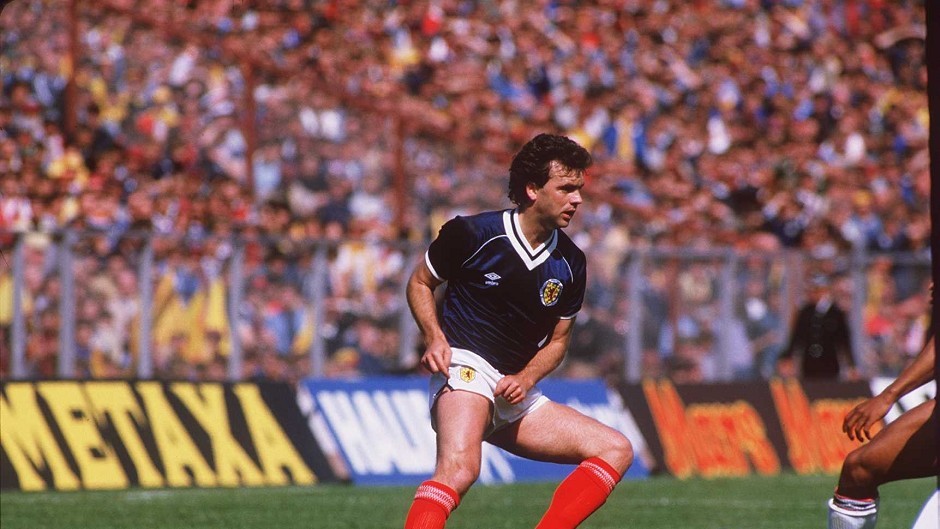There are some footballers who are blessed with sufficient class and quality to transcend the most bitter club rivalries.
Jimmy Johnstone belonged in that category, along with the likes of Jim Baxter, Denis Law and Kenny Dalglish.
Yet precious few players have cast such a mesmerising spell over their domain as Davie Cooper, who died tragically young at just 39 from a brain haemorrhage 25 years ago.
At the time, the news on March 23, 1995, cast a grim shadow over the game in these parts. And, even now, there are football fans throughout Scotland who reminisce about the wondrous tricks which this modest lad could achieve with a jink, a shimmy and a feint as he left bamboozled defenders sprawling in his wake.
While I was writing a book about the Scotland, Rangers, Motherwell and Clydebank star a decade ago, the scale of the tributes offered by many of the sport’s most revered figures testified to the huge admiration in which they held “Coop”.
But there was also a sense that even the most highly-regarded managers never quite knew how to get the best out of the shy lad who rejected offers from many English clubs during his career and was often spotted on the bus home to Hamilton in the 1980s when he was at Ibrox.
The former Scotland coach and Aberdeen director, Craig Brown, was among those who pondered why Cooper was left on the sidelines so often, despite creating and scoring some of the most wonderful goals at club and international level, as well as slotting home the penalty which helped secure Scotland’s place at the 1986 World Cup.
Brown said: “I think it’s all summed up by the fact that when I was coaching at Motherwell, we took an interest in Davie and one of our scouts went to look at him.
”In those days, you got a mark out of 10 in ten different disciplines – such as heading, tackling and ball control – and Coop only scored 58 out of 100. What these marks couldn’t point out was the sheer brilliance somebody like him was capable of with the ball at his feet and that exposed all the flaws in the report system.
”[Ex Scotland coach] Andy Roxburgh once made a video tribute to Davie which showed that some of the things he could do were quite extraordinary. He had practiced them fir hours, growing up as a kid in the 1960s, and he could beat players through sheer skill and artistry and he could do it inside or outside you, which made him so dangerous.
”He was also a consummate professional, an honest lad, who did his best wherever he went. He was completely in love with the game, so the fact he only gained 22 caps says a lot more about the environment he was playing in that about Davie himself.”
Roxburgh created his video to the musical accompaniment of Queen’s A Kind of Magic and the myriad highlights show he possessed a truly magnificent spontaneity.
Yet Cooper never made a fuss about it and remained as down to earth while winning cups at Hampden and joining the likes of Sir Alex Ferguson on World Cup duty as he was at the grassroots with Clydebank.
That was one of the reasons he was so adored by supporters from all backgrounds. As Ally McCoist recalled: “He was a complex lad, but one of the saddest aspects of his untimely death was the way he was becoming more outgoing and blossoming before our very eyes.
”I honestly believe we were about to see another Davie Cooper, somebody who would have been a terrific coach and inspiration to young players in Scotland, because he was so fantastically enthusiastic about football that it rubbed off on all those around him.
”I still have memories of him weaving past defenders or taking sumptuous free kicks. Or of him sparking havoc with an inch-perfect 40-yard pass or making difficult things look absurdly easy.
”These kinds of people are rare in sport, so they should be cherished. He wasn’t merely a player – he was an entertainer and one of the best.
”That’s why I’m blessed that my sons have the opportunity to enjoy Davie when he was at the height of his powers. The great goals, the sublime artistry, the outrageous pieces of trickery….there are there on YouTube or DVD and any youngsters with an interest in improving their game should check them out.”
It is a lofty recommendation for a genuinely mercurial talent. A quarter of a century after he left us, Coop still has a place in our hearts.
